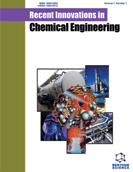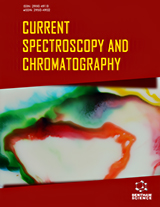Abstract
Integral membrane proteins are attractive targets for therapeutic intervention due to their crucial roles in cellular functions and their involvement in various diseases. However, targeting these proteins for degradation has posed significant challenges due to their complex structures and diverse functions. The emergence of proteolysis-targeting chimeras (PROTAC) represents a groundbreaking paradigm shift in drug development, offering a novel approach to address the degradation of integral membrane proteins. This review explores the innovative application of PROTAC technology in inducing the degradation of integral membrane proteins. PROTACs are molecules that have two roles: they bring together specific target proteins and E3 ubiquitin ligases, which help with ubiquitination and the degradation of proteins by proteasomes. As PROTACs are made up of separate parts, they can be put together to make custom molecules that can target difficult targets, such as integral membrane proteins. This review covers recent developments and advancements in the design and optimisation of PROTACs tailored for integral membrane protein degradation. Furthermore, it also discusses the problems that come up when trying to target membrane proteins and how PROTACs solve these problems by using ligands that can pass cell membranes and specifically interact with target proteins. It delves into the potential therapeutic implications of degrading integral membrane proteins using PROTACs and elucidates the impact of this novel approach in treating diseases that involve aberrant membrane protein expression or function by highlighting specific examples and case studies.
Current Indian Science
Title:Integral Membrane Protein Degradation: A Novel Paradigm by PROTAC Technology
Volume: 2
Author(s): Priyanka Ray*, Aditi Nayak and Saini Setua
Affiliation:
- Department of Pharmacy, Guru Nanak Institute of Pharmaceutical Science & Technology, Sodepur, Kolkata-114, India
Abstract: Integral membrane proteins are attractive targets for therapeutic intervention due to their crucial roles in cellular functions and their involvement in various diseases. However, targeting these proteins for degradation has posed significant challenges due to their complex structures and diverse functions. The emergence of proteolysis-targeting chimeras (PROTAC) represents a groundbreaking paradigm shift in drug development, offering a novel approach to address the degradation of integral membrane proteins. This review explores the innovative application of PROTAC technology in inducing the degradation of integral membrane proteins. PROTACs are molecules that have two roles: they bring together specific target proteins and E3 ubiquitin ligases, which help with ubiquitination and the degradation of proteins by proteasomes. As PROTACs are made up of separate parts, they can be put together to make custom molecules that can target difficult targets, such as integral membrane proteins. This review covers recent developments and advancements in the design and optimisation of PROTACs tailored for integral membrane protein degradation. Furthermore, it also discusses the problems that come up when trying to target membrane proteins and how PROTACs solve these problems by using ligands that can pass cell membranes and specifically interact with target proteins. It delves into the potential therapeutic implications of degrading integral membrane proteins using PROTACs and elucidates the impact of this novel approach in treating diseases that involve aberrant membrane protein expression or function by highlighting specific examples and case studies.
Export Options
About this article
Cite this article as:
Ray Priyanka*, Nayak Aditi and Setua Saini, Integral Membrane Protein Degradation: A Novel Paradigm by PROTAC Technology, Current Indian Science 2024; 2 : e310724232512 . https://dx.doi.org/10.2174/012210299X306297240726094157
| DOI https://dx.doi.org/10.2174/012210299X306297240726094157 |
Print ISSN 2210-299X |
| Publisher Name Bentham Science Publisher |
Online ISSN 2210-3007 |

- Author Guidelines
- Bentham Author Support Services (BASS)
- Graphical Abstracts
- Fabricating and Stating False Information
- Research Misconduct
- Post Publication Discussions and Corrections
- Publishing Ethics and Rectitude
- Increase Visibility of Your Article
- Archiving Policies
- Peer Review Workflow
- Order Your Article Before Print
- Promote Your Article
- Manuscript Transfer Facility
- Editorial Policies
- Allegations from Whistleblowers
- Announcements



















.jpeg)








